A special point that creates the emotional depth of the film is the song “ A Comrade Zone”, written by writer Nguyen Trong Luan and composed by musician Quynh Hop. This song not only serves as background music throughout the film but also acts as a link between the past and the present, bringing viewers back to the fierce but humane war years.
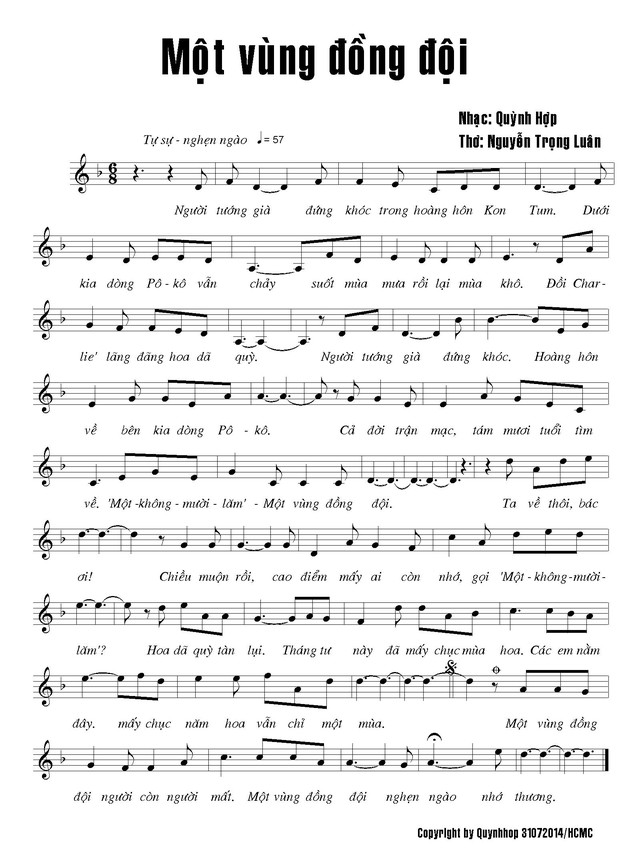
The song " A Comrade's Area" not only serves as background music throughout the film but also acts as a connecting thread between the past and the present.
PHOTO: TGCC
Cinematic language recreates the glorious past
The film opens with the image of writer Nguyen Trong Luan sitting in front of his laptop, the melodies and lines appearing on the screen like a quiet flashback. Interspersed with those are scenes shot from above (by flycam), covering the heights 1015 and 1049 - which used to be fierce battlefields . The scene of the Po Ko River (Kon Tum) flowing slowly, or the Central Highlands hills covered in fog not only evokes a majestic, quiet space but also acts as a silent witness to history. The emotion of the film appeared right at the beginning with the story told by writer Nguyen Trong Luan when he witnessed his commander, Lieutenant General Khuat Duy Tien, standing on the top of 1015 (Charlie Hill, or Sac Ly Hill) looking down at the Po Ko River and bursting into tears. Those were not only the tears of an old general returning to the old battlefield, but also the tears of a soldier, a comrade , mourning those who had fallen forever. This moment was also the inspiration for the song "A Comrade's Area ".
In the vast space of the Central Highlands, when the image of martyrs' graves spread across Sa Thay cemetery appears, the melody of A Comrade's Area is played, making everything more haunting and emotional than ever: "You have been lying here for decades, the flowers are still only one season...".
The lyrics are taken from the poems of writer Nguyen Trong Luan, recreating the choked screams of Lieutenant General Khuat Duy Tien when he returned to the old battlefield. Those lyrics are not only a sorrow but also a reminder that: the soldiers of the past may have fallen, but the comradeship will remain forever intact.
Musician Quynh Hop used the solemn melodies, mixed with a bit of the sadness of the Central Highlands to bring listeners into the flow of memories. When the song resounded in the vast space of the old battlefield, viewers not only heard, but also felt the pain of the living soldiers for their fallen comrades.
The 27-minute documentary "The Comrade Zone" by the group of authors: Ho Nhat Thao, Tran Thanh Hung, Tran Vu Linh, Huynh Thanh Huyen... attended the 42nd National Television Festival in Binh Dinh. Mr. Tran Thanh Hung (screenwriter) said that the film is a stick of incense that the crew sent to Lieutenant General - Hero of the People's Armed Forces Khuat Duy Tien, Hero of the People's Armed Forces Dam Vu Hiep, martyrs, soldiers who fought and sacrificed at the two high points 1049 and 1015 in 1972.
Eternal camaraderie
One of the highlights of The Comrades Zone is that the film does not tell about battles, but focuses on exploiting the sacred camaraderie. That feeling does not only exist during war, but also lasts even when the soldiers have returned to civilian life.
The moment writer Nguyen Trong Luan and veterans of Regiment 64 lit incense on the tombstone of martyr Dam Vu Hiep at Sa Thay cemetery was an emotional scene. When his trembling hands wiped the words engraved on the tombstone, memories of a fiery time suddenly arose. The soldier of the past has now turned gray, but the memories of his comrades are still intact as ever. That comradeship not only exists in the soldiers, but is also passed on to the next generation. The story of Colonel Dam To Giang, daughter of martyr Dam Vu Hiep (who was just signed by the President to posthumously award the title of Hero of the People's Armed Forces on January 23, 2025) is one of the most emotional stories. Growing up without a father, she understood the pain of her mother and family. But instead of being immersed in the loss, she decided to follow the military path to continue the ideals for which her father had sacrificed. The strange connection between Ms. Dam To Giang and Ms. Do Hoai Nam - the daughter of another martyr who died at 1015 - further emphasizes the emotional bond between the children of the generation of soldiers. Notably, both were born in June 1972, with the same birth hour and date. They did not get to see their fathers, and grew up with the same painful feelings. Their chance meeting through the annual meetings of the veterans of Regiment 64 (Division 320) is proof that although the war is over, the bonds between the children of the generation of soldiers still exist. And the most special thing about the film, to touch the hearts of viewers, is the images and statements with the little strength left in this world of the famous writer Khuat Quang Thuy.
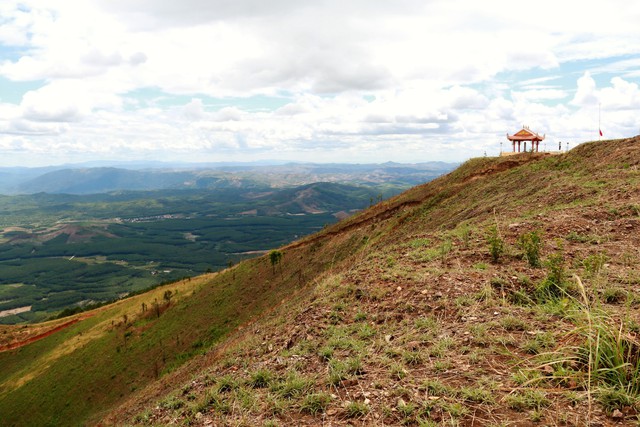
Historical monument stele at height 1015 (Sac Ly hill), seen from white rock point
PHOTO: MAI THANH HAI
Writer Khuat Quang Thuy was a close high school classmate of People's Armed Forces Hero Dam Vu Hiep, both from Phuc Tho (Hanoi). Both talented, they promised each other to study at Hanoi University of Literature, but then both put down their pens to take up arms to follow the sacred call of the Fatherland. "What is literature? Literature is here. It is this life. It is the fight of this nation", writer Khuat Quang Thuy said that his literary career was indebted to his classmate and comrade Dam Vu Hiep with that saying before deciding to write a volunteer application to go to the battlefield. It was also like a declaration of the entire generation of Northern youth at that time.
Many people watching this movie could not hide their emotion. And tears fell at the end of the movie with the poem by writer Khuat Quang Thuy for his close friend: " Please forgive those who are still alive/It's not easy to make a living/Come back and be happy, Hiep/Even though it's late, it's still lucky/Mom still had time to gather a handful of soil/ Sew the last shirt for you, my friend" .
Director Ho Nhat Thao was extremely subtle in using silence to evoke emotions. Without dense narration, the film lets the characters, images and music tell their own stories. The scene of incense smoke mixed with the afternoon mist on the top of 1015, the scene of a veteran standing still looking into the distance, or simply a moss-covered tombstone... all create a quiet space, forcing viewers to think. The slow, soulful melodies of A Comrade's Area resound in the midst of the old battlefield scene, like a whisper from the past.
The Comrades' Zone is not only a documentary about war, but also an epic about eternal comradeship. With realistic, artistic images, combined with the emotional melody of A Comrades' Zone , the film revives memories of the battles on heights 1015 and 1049 - where hundreds of soldiers lay down their lives. But more importantly, the film affirms one thing: war may pass, but comradeship and humanity will remain forever.
Today, when memories of the war are gradually fading away, films like The Comrade Zone are the bridge for the next generation to understand and appreciate the sacrifices of their ancestors. It is not only a work of cinema, but also a tribute to those who fell for the independence and freedom of the nation.
Source: https://archive.vietnam.vn/khuc-trang-ca-cua-tinh-dong-doi/


![[Photo] Welcoming ceremony for Prime Minister of the Federal Democratic Republic of Ethiopia Abiy Ahmed Ali and his wife](https://vstatic.vietnam.vn/vietnam/resource/IMAGE/2025/4/15/77c08dcbe52c42e2ac01c322fe86e78b)
![[Photo] The two Prime Ministers witnessed the signing ceremony of cooperation documents between Vietnam and Ethiopia.](https://vstatic.vietnam.vn/vietnam/resource/IMAGE/2025/4/15/16e350289aec4a6ea74b93ee396ada21)
![[Photo] National Assembly Chairman Tran Thanh Man attends the summary of the organization of the Conference of the Executive Committee of the Francophone Parliamentary Union](https://vstatic.vietnam.vn/vietnam/resource/IMAGE/2025/4/15/fe022fef73d0431ab6cfc1570af598ac)
![[Photo] Prime Minister Pham Minh Chinh holds talks with Ethiopian Prime Minister Abiy Ahmed Ali](https://vstatic.vietnam.vn/vietnam/resource/IMAGE/2025/4/15/4f7ba52301694c32aac39eab11cf70a4)
![[Photo] General Secretary To Lam receives Ethiopian Prime Minister Abiy Ahmed Ali](https://vstatic.vietnam.vn/vietnam/resource/IMAGE/2025/4/15/086fa862ad6d4c8ca337d57208555715)





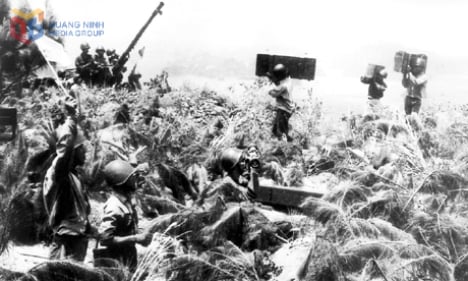

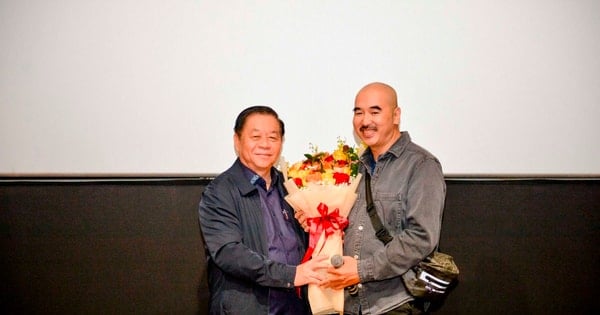

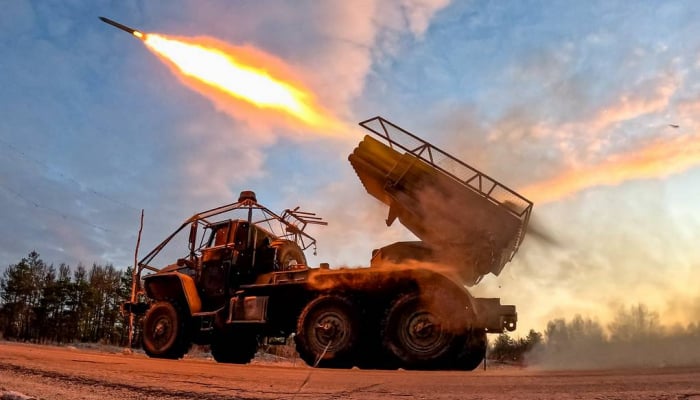



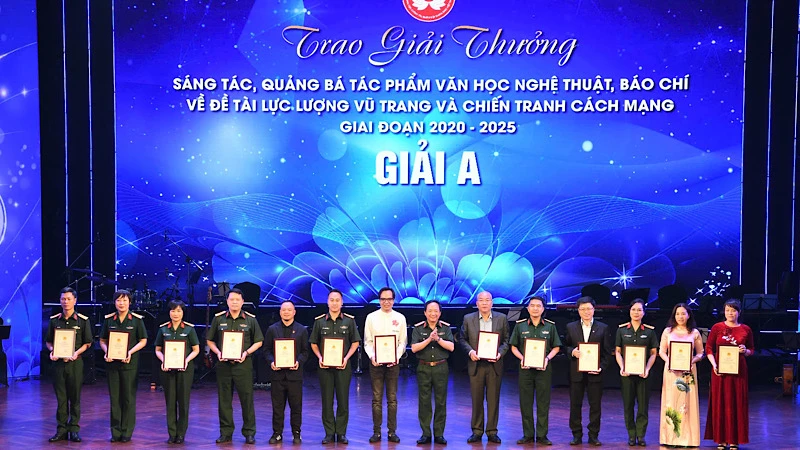
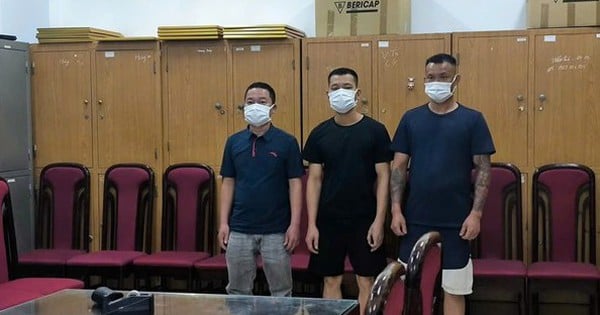
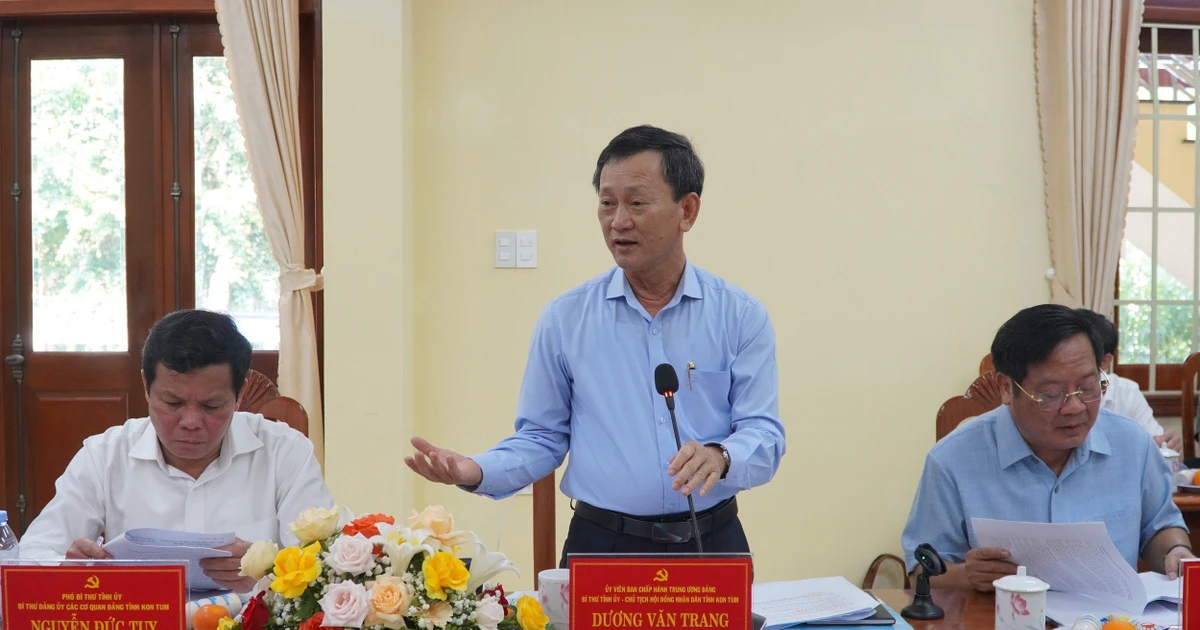
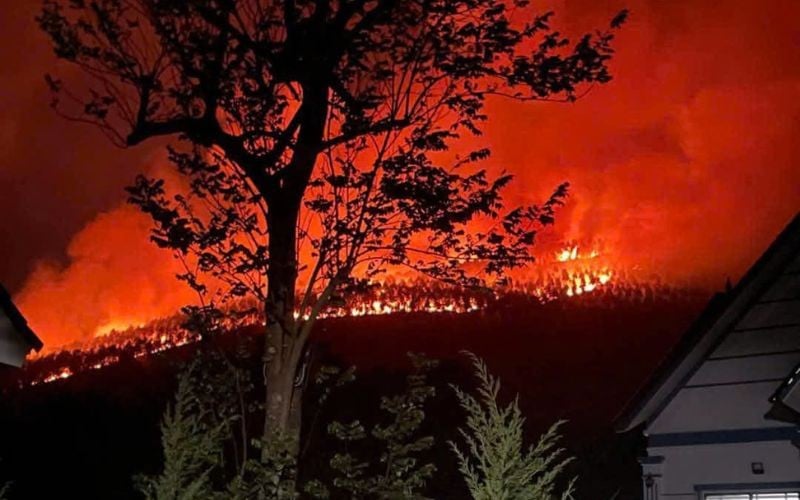











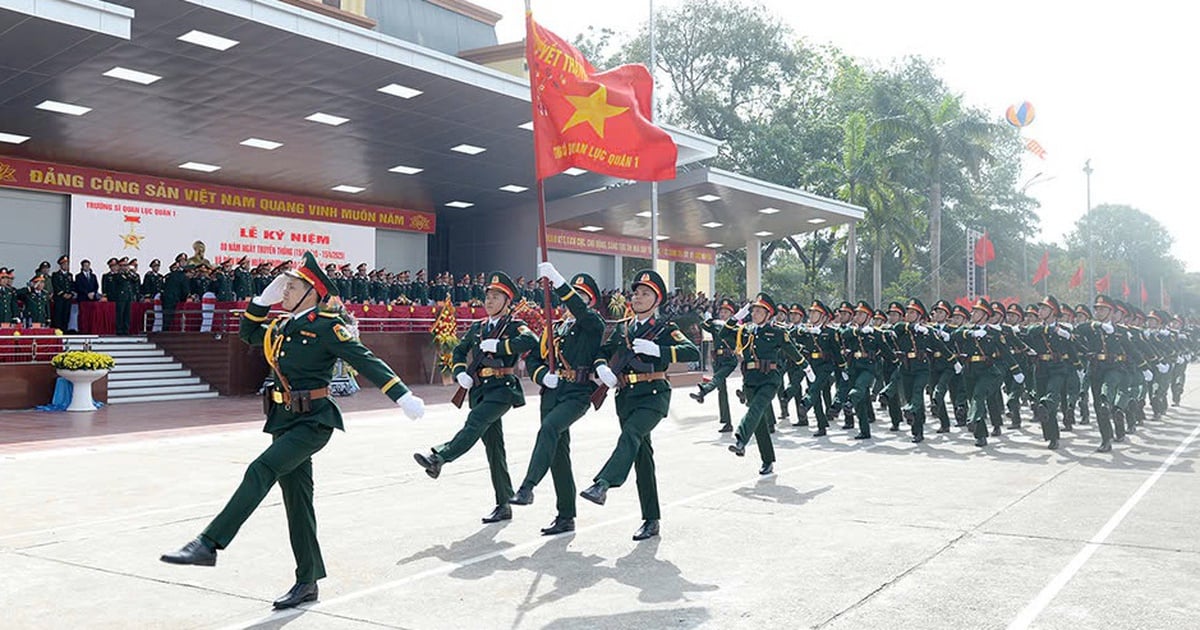
![[Photo] General Secretary To Lam meets with veteran revolutionary cadres, meritorious people, and exemplary policy families](https://vstatic.vietnam.vn/vietnam/resource/IMAGE/2025/4/15/7363ba75eb3c4a9e8241b65163176f63)





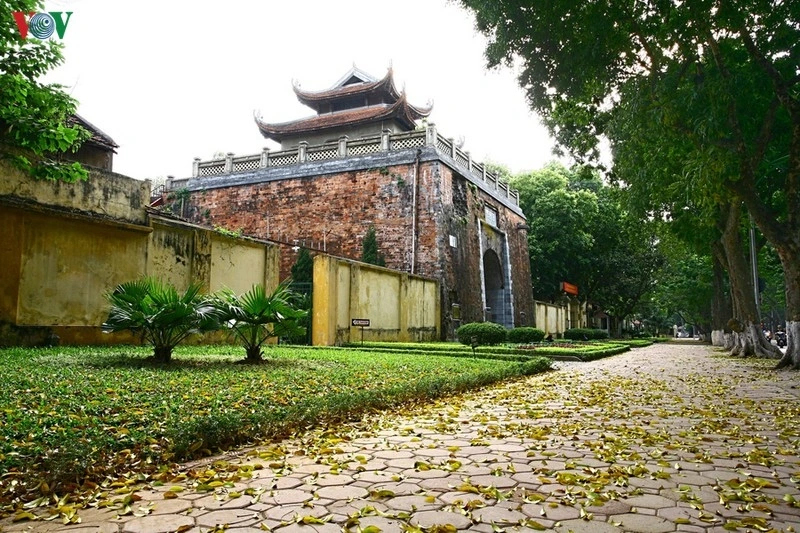
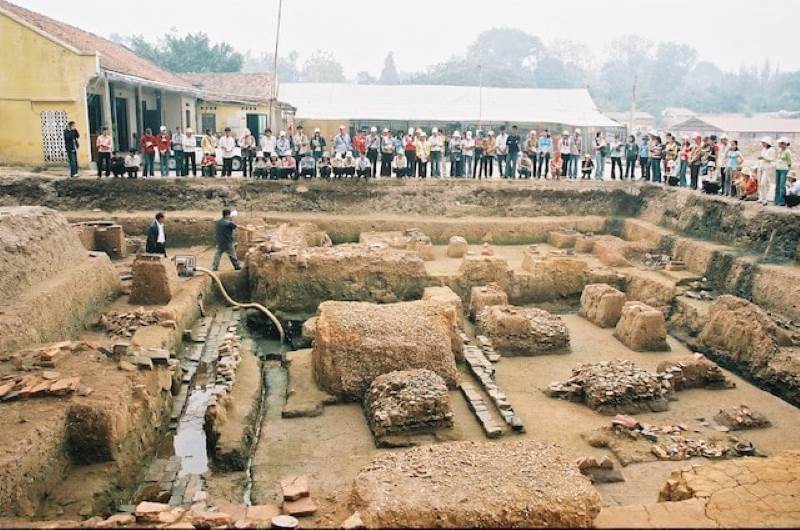

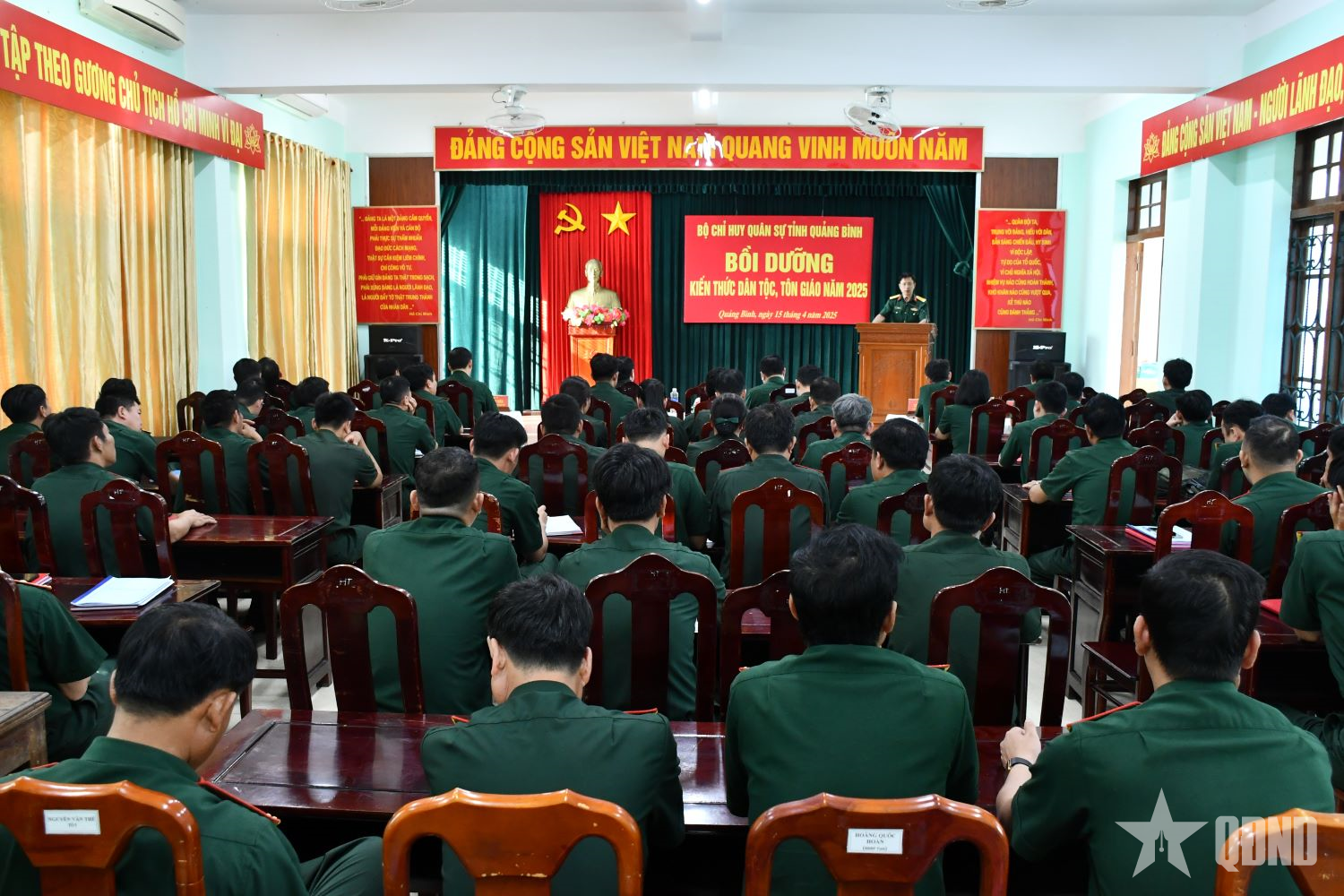



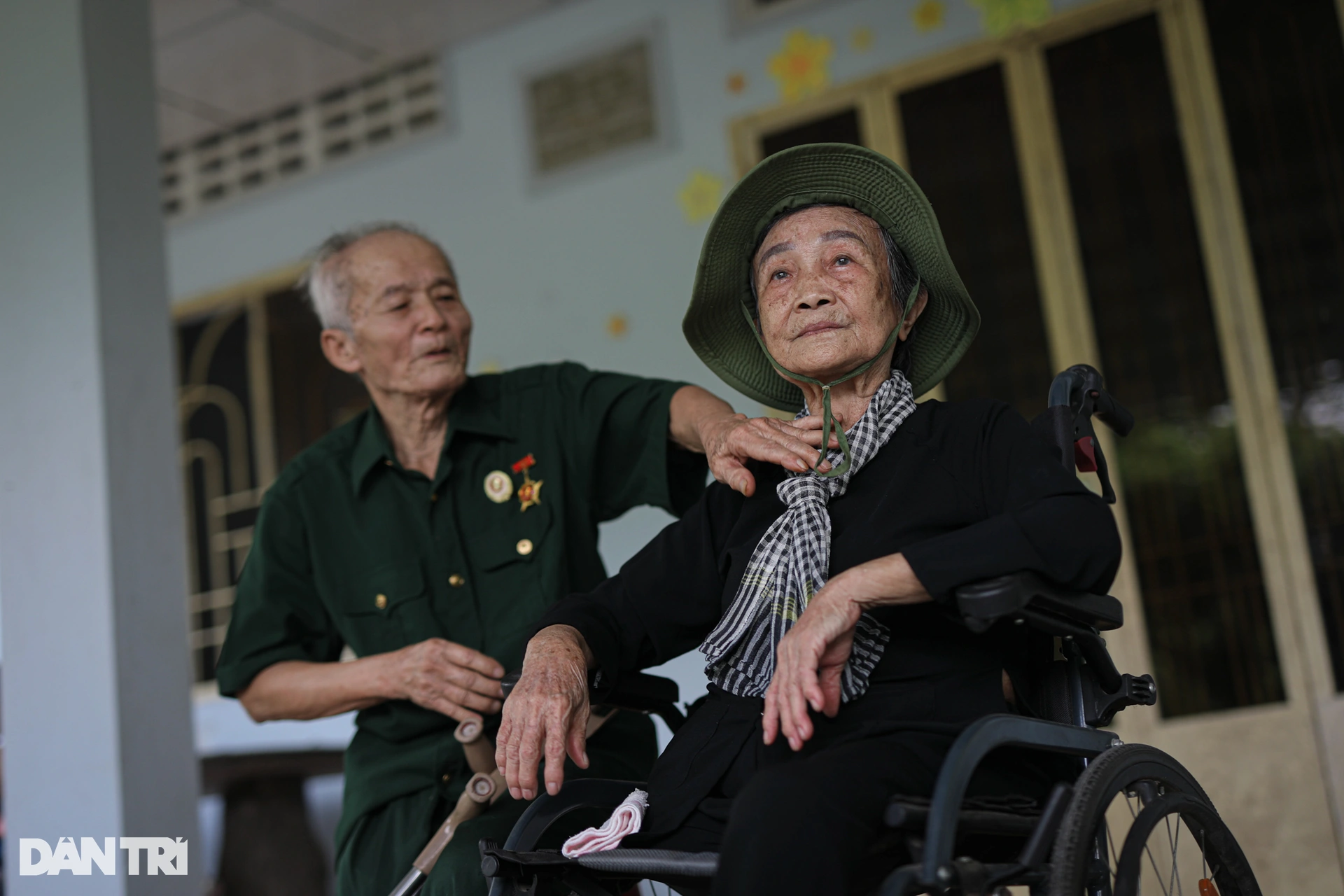

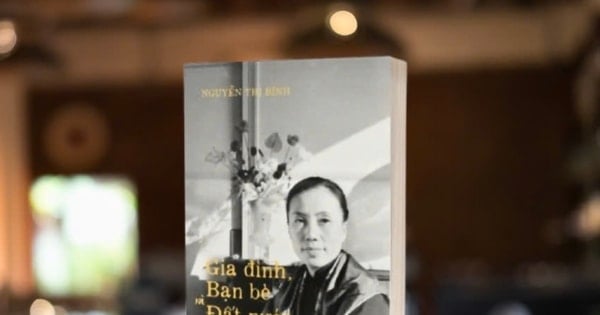

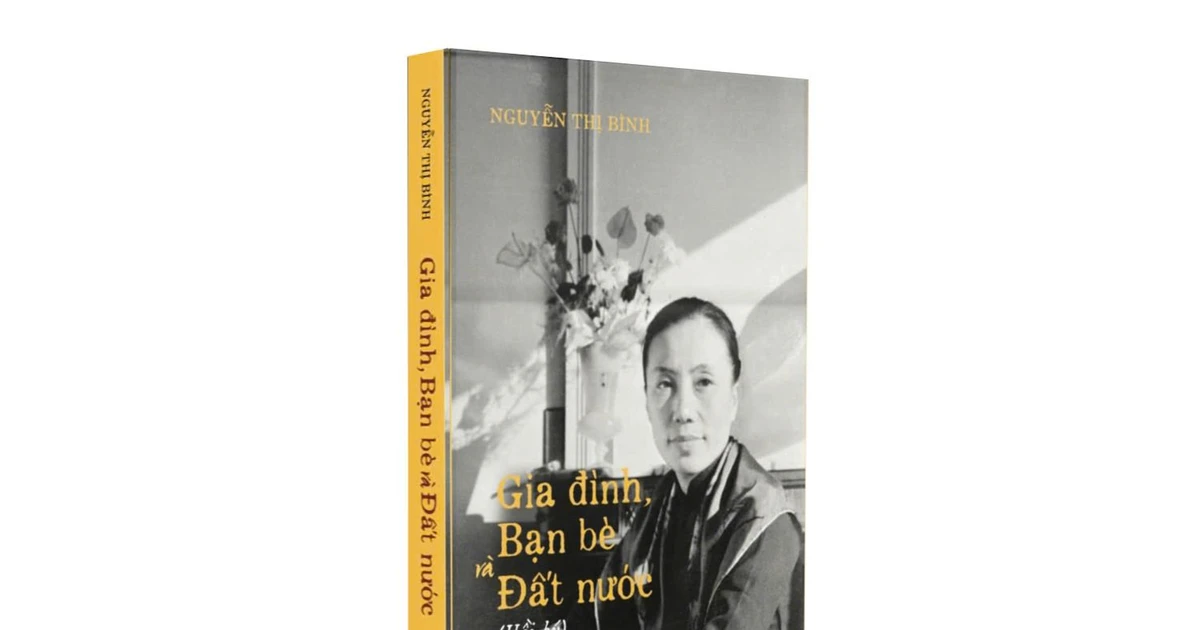
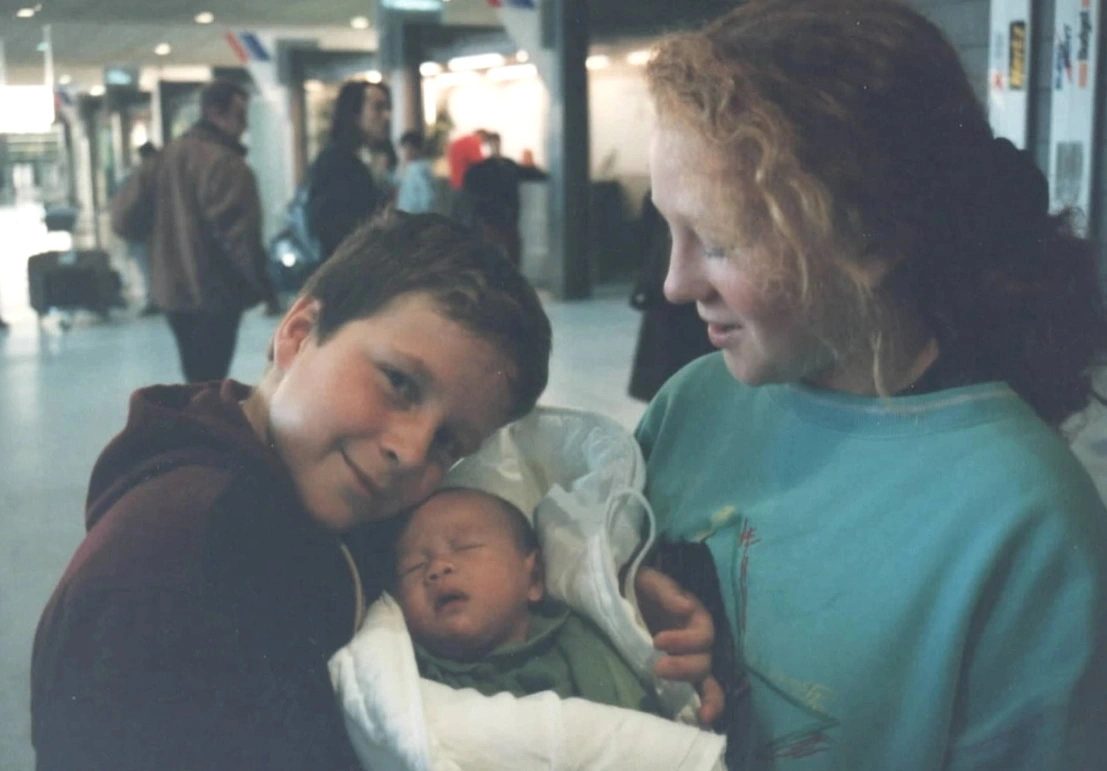








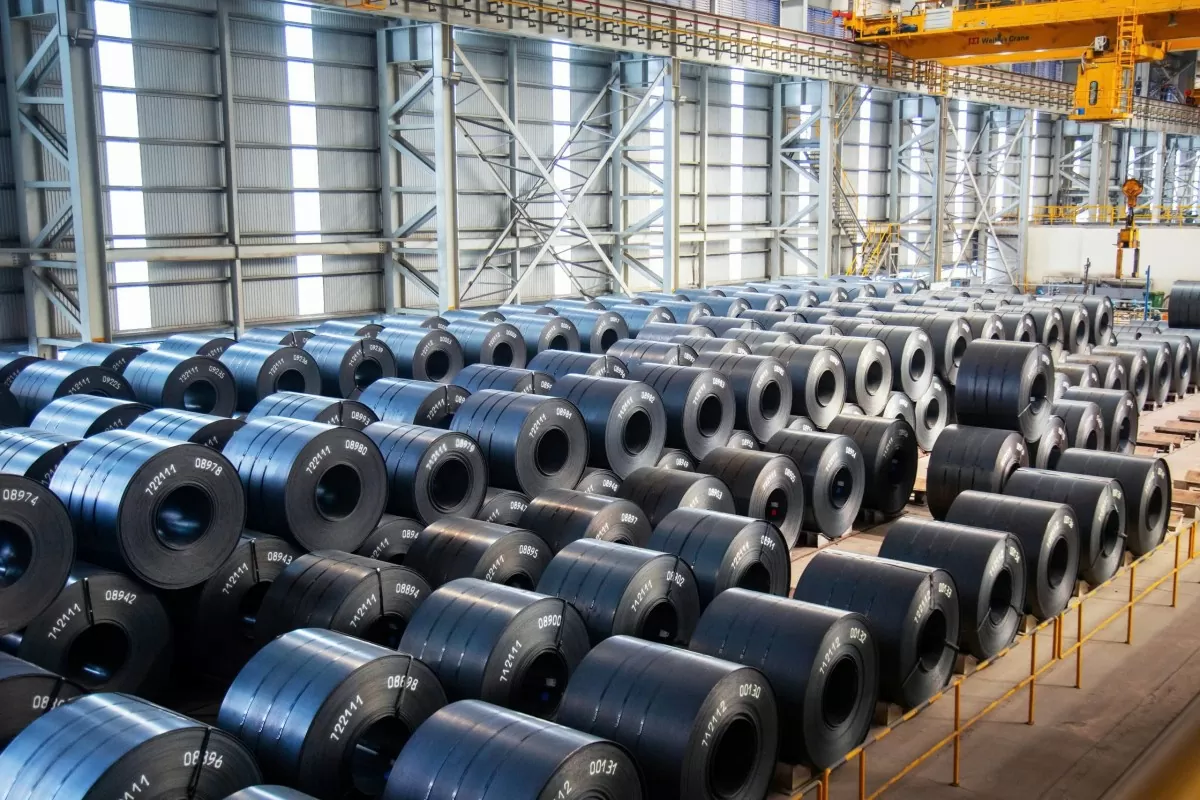






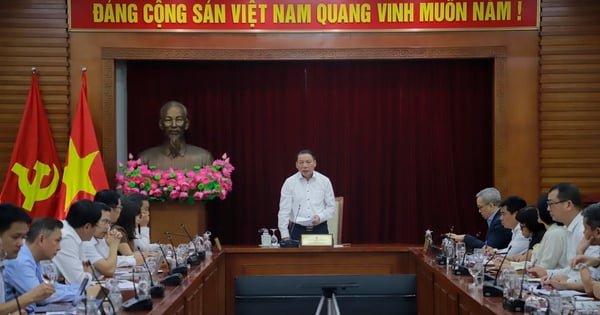



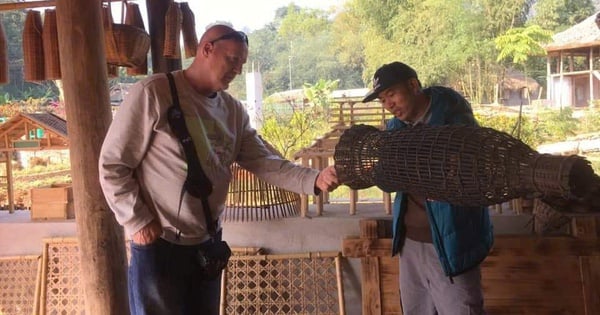

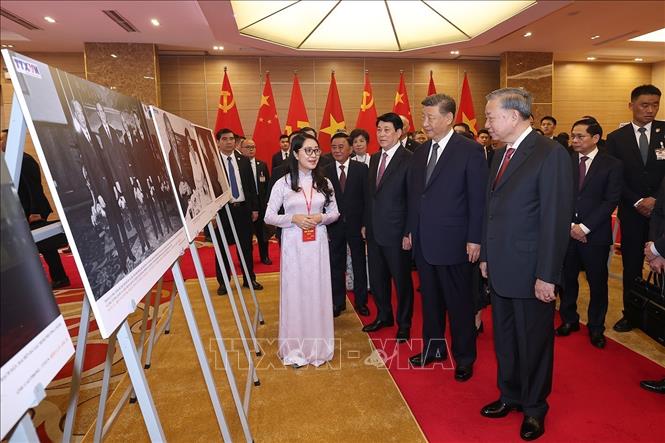

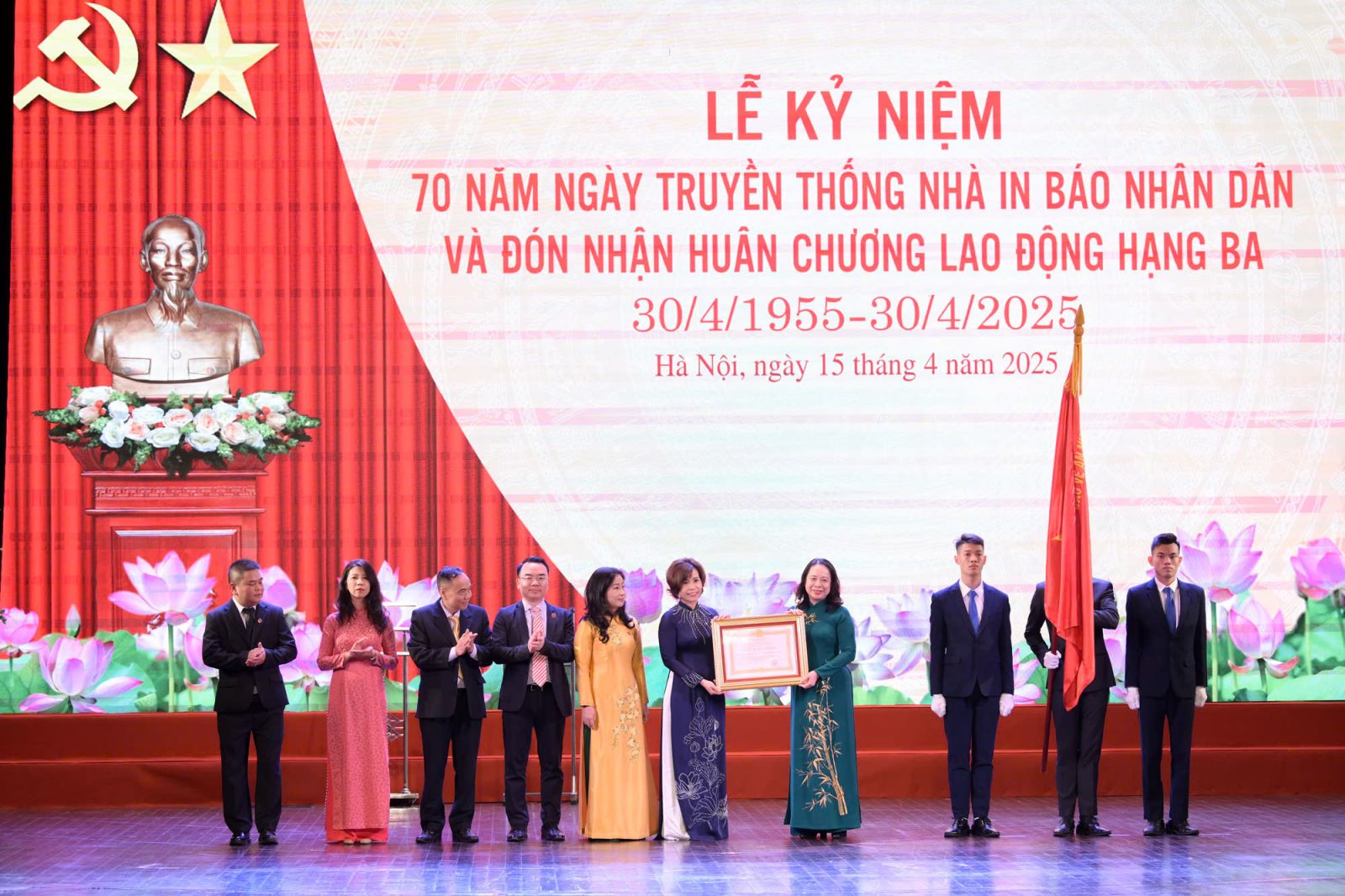




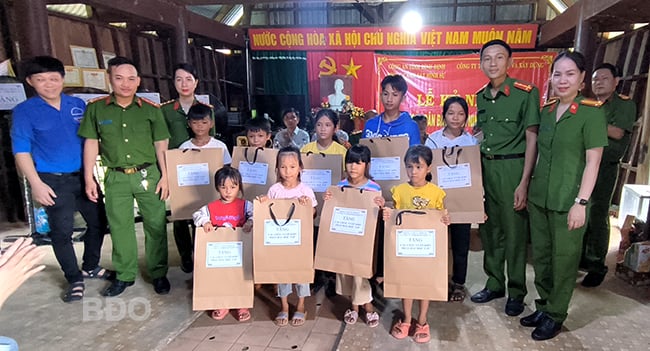

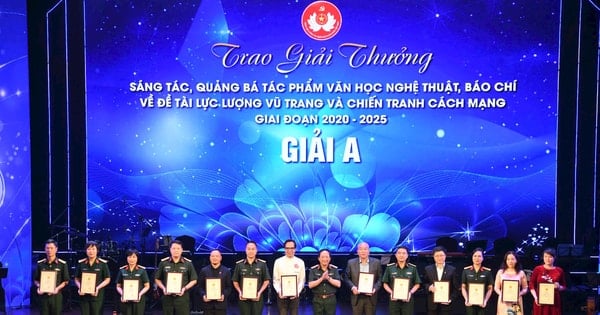







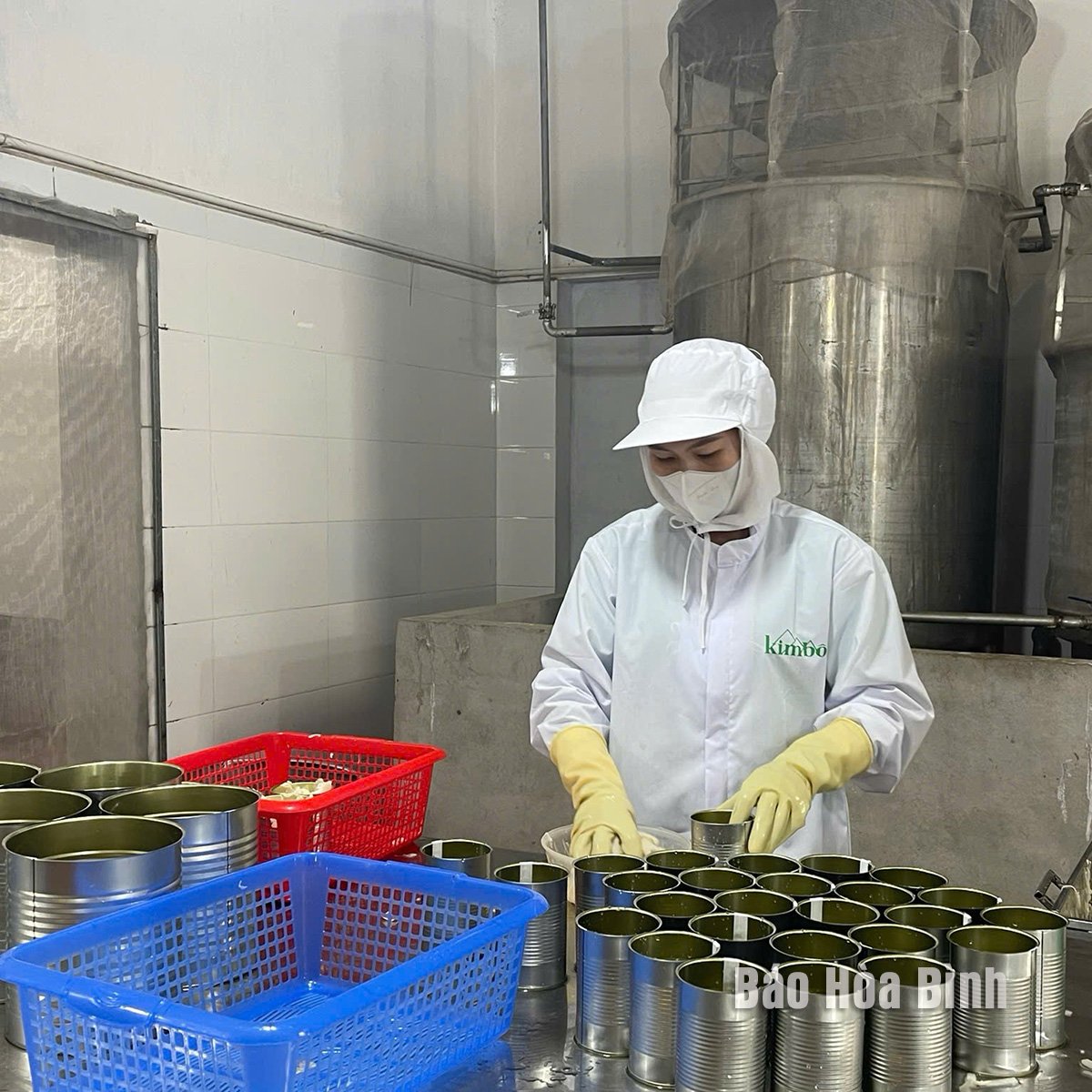

Comment (0)